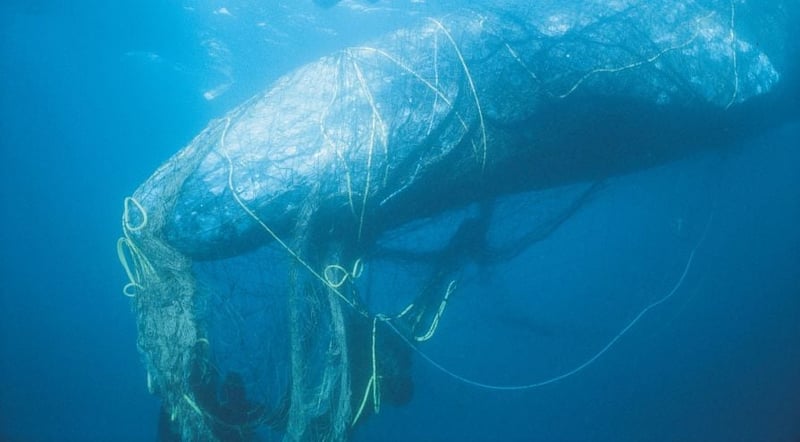
Sperm whale trapped in fishing net dies
News
Following the tragic death of a sperm whale trapped in fishing nets off the coast of China, we’re calling for more proactive action to protect sea animals against abandoned, lost or discarded fishing gear, otherwise known as ‘ghost gear’
It is unclear whether the incident was caused by active fishing gear or ghost gear. But this case highlights the threat to marine animals from human activity.
Our work
In 2015, we launched the Global Ghost Gear Initiative (GGGI)to combat the growing threat of ghost gear in our oceans. It is an alliance of governments, industry representatives, and non-governmental organisations with a shared commitment to tackle the problem.
Members include GhostNets Australia, the Marine Conservation Society, supermarket giant Sainsbury’s, Surfers Against Sewage, Northern Prawn Fishery and Austral Fisheries.
Another tragedy
The global head of our Sea Change campaign, Ingrid Giskes, said:
“The sad story of an entangled sperm whale off the coast of Shenzhen in China highlights the potential risks to marine life.”
Ingrid explained how whales can become entangled in large, heavy fishing nets:
“These floating death traps can drag them for miles, restricting their movement and ultimately exhausting them until they drown.
“Abandoned and lost fishing gear poses one of the greatest threats to marine animals. We estimate that ghost gear kills around 136,000 seals, sea lions and large whales every year through entanglement and ingestion, with many more suffering devastating injuries.”
Working together to make a sea change
Following a succession of incidents where marine animals have been trapped in fishing gear across the world, the time for more proactive collaboration is now.
Urgent preventative action is needed. We’re calling on more organisations to support the GGGI.
The GGGI gathers information about the scale of the ghost gear problem globally, develops best practice guidelines for the fishing industry and seafood sector, and works on the ground to implement sustainable solutions to reduce and remove ghost fishing nets.
Ingrid added: “To achieve sustainable oceans, we need member states to make a voluntary commitment at the June UN Oceans Conference in New York to substantially reduce ghost gear as part of their actions to achieve Sustainable Development Goal 14.
“We can’t afford to be complacent about protecting marine animals. This is a reminder that we need preventative action and we need it quickly.”
*Please note: Image shows a whale entangled in ghost gear off the coast of California for demonstrative purposes, and is not the sperm whale in China
We can’t afford to be complacent about protecting marine animals. This is a reminder that we need preventative action and we need it quickly.